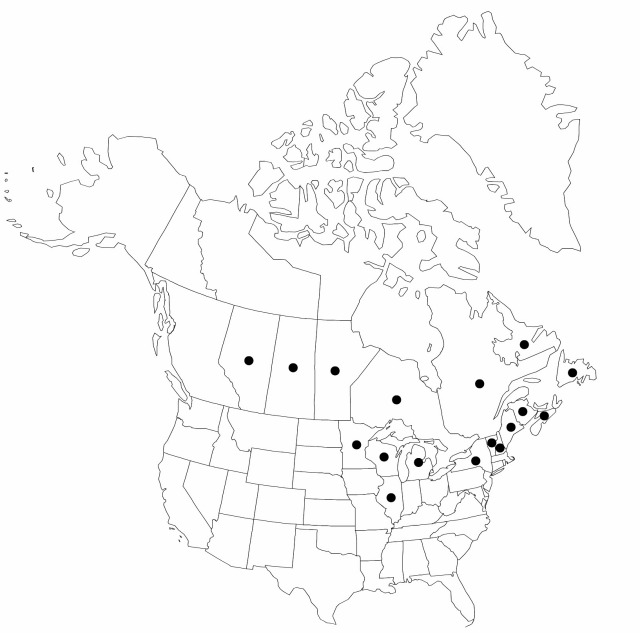Difference between revisions of "Carex houghtoniana"
Amer. J. Sci. Arts 30: 63, plate Bb, fig. 91. 1836.
FNA>Volume Importer |
FNA>Volume Importer |
||
| Line 34: | Line 34: | ||
-->{{#Taxon: | -->{{#Taxon: | ||
name=Carex houghtoniana | name=Carex houghtoniana | ||
| − | |||
|authority=Torrey ex Dewey | |authority=Torrey ex Dewey | ||
|rank=species | |rank=species | ||
| Line 49: | Line 48: | ||
|publication year=1836 | |publication year=1836 | ||
|special status= | |special status= | ||
| − | |source xml=https://jpend@bitbucket.org/aafc-mbb/fna-data-curation.git/src/ | + | |source xml=https://jpend@bitbucket.org/aafc-mbb/fna-data-curation.git/src/f50eec43f223ca0e34566be0b046453a0960e173/coarse_grained_fna_xml/V23/V23_923.xml |
|genus=Carex | |genus=Carex | ||
|section=Carex sect. Paludosae | |section=Carex sect. Paludosae | ||
Revision as of 21:12, 16 December 2019
Plants colonial; rhizomes long-creeping. Culms lateral, trigonous, 20–80(–100) cm, scabrous-angled. Leaves: basal sheaths reddish purple, bladeless, apex of inner band glabrous; ligules 1.5–14 mm; blades green, M-shaped, 2.8–8.5 mm wide, glabrous. Inflorescences 4.5–23 cm; proximal (1–)2–3(–4) spikes pistillate, ascending; distal spikes erect; terminal 1–3 spikes staminate. Pistillate scales lanceolate to ovate, apex acute to acuminate-awned, glabrous, scabrous-ciliate apically. Perigynia ascending to spreading, 16–22-veined, broadly ovoid to broadly ellipsoid, 4.5–6.5 × 2–2.9 mm, cellular details and veination clear, sparsely short-pubescent; beak 1.2–2 mm, bidentulate, teeth straight, 0.5–0.8 mm.
Phenology: Fruiting Jun–Aug.
Habitat: Dry to moist sandy or gravelly soils in open, disturbed sites, rocky balds, ledges
Elevation: 0–1000 m
Distribution

Alta., Man., N.B., Nfld. and Labr., N.S., Ont., Que., Sask., Ill., Maine, Mich., Minn., N.H., N.Y., Vt., Wis.
Discussion
Carex houghtoniana responds strongly to fire and other disturbances, appearing quickly, presumably from the seedbank, then often dying out in a few years if the disturbance is not repeated.
The epithet is often, but not originally, spelled “houghtonii.”
Selected References
None.
